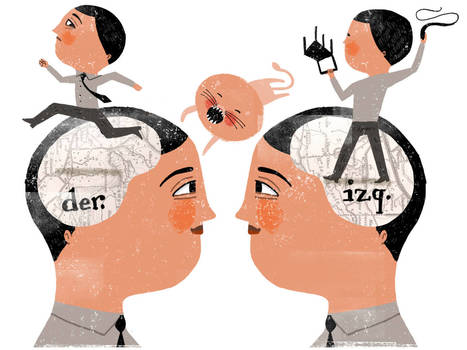The teenage brain has been characterized as a risk-taking machine, looking for quick rewards and thrills instead of acting responsibly. But these behaviors could actually make teens better than adults at certain kinds of learning.
“In neuroscience, we tend to think that if healthy brains act in a certain way, there should be a reason for it,” says Juliet Davidow, a postdoctoral researcher at Harvard University in the Affective Neuroscience and Development Lab and the lead author of the study, which was published Wednesday in the journal Neuron.
But scientists and the public often focus on the negatives of teen behavior, so she and her colleagues set out to test the hypothesis that teenagers’ drive for rewards, and the risk-taking that comes from it, exist for a reason.
When it comes to what drives reward-seeking in teens, fingers have always been pointed at the striatum, a lobster-claw-shape structure in the brain. When something surprising and good happens — say, you find $20 on the street — your body produces the pleasure-related hormone dopamine, and the striatum responds.
“Research shows that the teenage striatum is very active,” says Davidow. This suggests that teens are hard-wired to seek immediate rewards. But, she adds, it’s also shown that their prefrontal cortex, which helps with impulse control, isn’t fully developed. Combined, these two things have given teens their risky rep.
Learn more / En savoir plus / Mehr erfahren:
http://www.scoop.it/t/21st-century-learning-and-teaching/?tag=Study...
http://www.scoop.it/t/21st-century-learning-and-teaching/?tag=Research



 Your new post is loading...
Your new post is loading...



![How Teens Deal With Privacy and Mobile Apps [Infographic] | 21st Century Learning and Teaching | Scoop.it](https://img.scoop.it/zPOQ9wPzCE4bLe6sIxtoczl72eJkfbmt4t8yenImKBVvK0kTmF0xjctABnaLJIm9)








Learn more / En savoir plus / Mehr erfahren:
http://www.scoop.it/t/21st-century-learning-and-teaching/?tag=Study...
http://www.scoop.it/t/21st-century-learning-and-teaching/?tag=Research